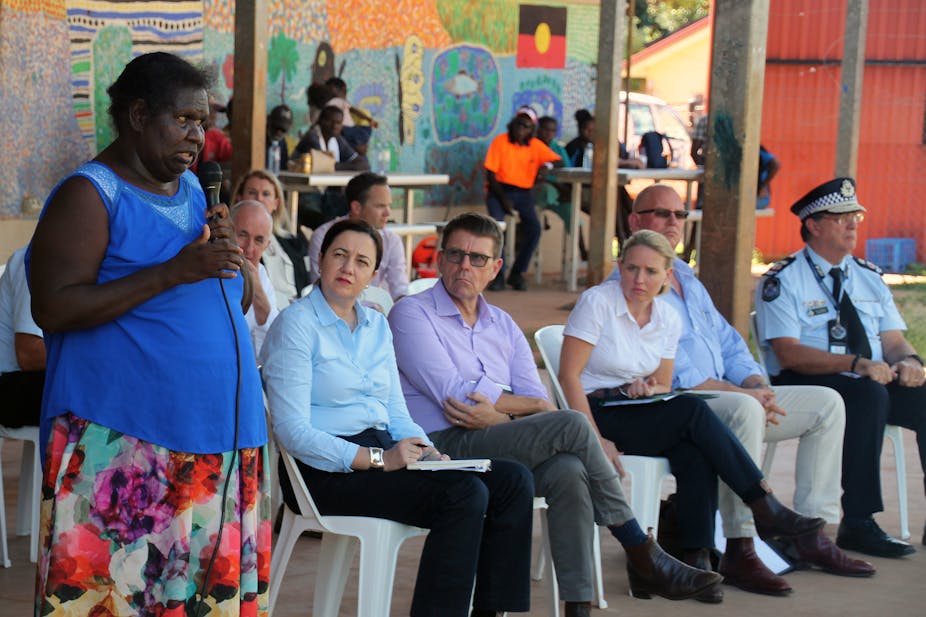The continual construction of Indigenous Australians as “failures” in the media and in policy is having unintended consequences.
Media reporting and policies almost always focus on what is “wrong” with Indigenous Australians. They look at the problems Indigenous people face compared to non-Indigenous Australians.
Recent events in Aurukun, including the closure of the local school, remind us of the serious challenges that exist in remote Aboriginal communities, particularly in northern Australia.
But is a policy focus on the problems of these communities actually a productive way to bring about change?
Australians have become accustomed to hearing about the failure to turn around appalling health and incarceration statistics or ameliorate deep inequalities in education, employment and housing for Indigenous people.
A litany of research in education continually bemoans the poor performance of Indigenous students in comparison to their non-Indigenous peers.
It is crucial that challenges and problems in remote communities are exposed and dealt with. But this narrative has become so dominant that “failure” and “problems” become attributed to Indigenous Australians themselves rather than to social or economic disadvantage, or even intercultural misunderstandings.
In certain areas of research, namely education, there is growing evidence that constant discussions around failure are so pervasive that they risk of becoming self-fulfilling.
This externalising of blame places the reason for failure squarely on families and communities, while absolving policymakers of any responsibility.
We need policy discussion that goes beyond the simplistic constructions of the past and recognises that policy is often itself problematic.
Challenging this discourse of deficit
Most Aboriginal and Torres Strait Islander people do not consider themselves in terms of what they “lack”. But this is the dominant discourse to which many are constantly exposed.
For example, current government policy is entitled the “Indigenous Advancement Strategy”. By its very name, this suggests that Indigenous people are in some way “behind” or “lacking”, needing to be advanced.
While seemingly innocuous, approaches built on these notions shape public perception of Indigenous people and their communities as failures. This overlooks that there is a range of positive and negative outcomes.
Changing the discussion of “deficit” surrounding Indigenous Australia is a difficult thing to do.
It is tempting to simply go to the strengths of Indigenous Australia and point out the many successes that are occurring throughout the country in key areas such as governance, employment, business, development and sport.
Providing such balance is important in resetting the discussion, but it is not enough.
There is a serious need to understand how such discourses are produced and repeated, and what their effect might be on efforts to alleviate Indigenous disadvantage.
Researchers at the Australian National University’s National Centre for Indigenous Studies are in the early stages of a project designed to understand and map the prevalence of this language of “deficit” in policy.
One early finding is that once people begin challenging this way of talking, it changes the conversation about what is possible in Indigenous policy and development.
Our recent work in schools is an example of this.
We have been conducting a series of interviews with parents, community members, teachers and educational leaders before and after the running of strength-based programs.
Analysing the effects of programs like Engoori and Learning on Country, teachers report that changing their daily routine to include activities centred on what students contribute to the classroom, rather than what they lack, has had a beneficial effect on teaching and learning.
While this research is embryonic, there is potential for this type of work to challenge our national mindset on what is possible in Indigenous policy development. This in turn can change the conversation for the future.
Bill and Benjamin will be online for an Author Q&A between 11:30am and 12:30pm on Friday 10 June, 2016. Post any questions you have in the comments below.

